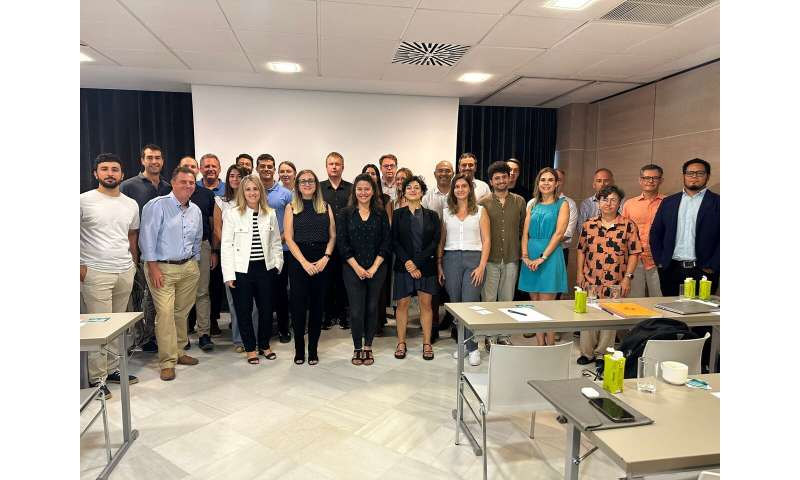European plastics policy embraces bio-based plastics

The European plastics policy has made a significant step towards an eco-friendly future by recognising the importance of bio-based and biodegradable plastics in addressing environmental issues caused by fossil-based alternatives. In this respect, Polyhydroxyalkanoates (PHAs), a biodegradable biopolymers family which is made from microorganisms and renewable carbon sources, have emerged as a sustainable option to their fossil-based counterparts.
The ViSS project, funded by the European Commission in the framework of the Horizon Europe funding programme and coordinated by CETEC-Technology Centre of Plastics and Footwear, was launched in Murcia on 13 September. Its goal is to establish a strong value chain for PHBV, a PHA copolymer that is produced from industrial organic residues, with excellent properties to be used for food packaging applications. Furthermore, it's both mechanically recyclable and biodegradable in all environmental settings.
The ViSS project coordinator, CETEC, a Technology Centre based in Spain and specialised in plastics and bioplastics, is highly dynamic within the framework of EU funding programmes, usually promoting and coordinating European projects. Indeed, as a result of several projects, a CETEC spin-off (CETEC Biotechnology) focused on the production of PHBV has arisen. CETEC Biotechnology is also participating in the project as a key partner for the creation of the ViSS biobased value chain.
"At CETEC, we are committed to shaping the plastic sector towards a more sustainable one while increasing the environmental and human safety profile of the involved materials, processes and products", said Jose Antonio Plaza. "ViSS project is a clear example of how a biobased value chain can replace a fossil-based one, particularly those intended for plastic packaging applications".
"The negative effect of fossil-based plastics in the environment is well outlined in the EU circular economy action plan, considering that over 87% of Europeans are worried about it ", said Marcello Bardellini, Project Management Officer at ICONS. "The VISS project comes as a solution to such a problem by creating a sustainable plastic value chain, valorising food industry residues and developing recyclable and biodegradable food packaging. At ICONS, we bring to the consortium our expertise in science communication, business and social innovation. This will ensure that all stakeholders, citizens and industrial players are aware and engaged in this transition towards a circular, economically viable and environmentally sustainable bio-based plastic value chain".
In its pursuit of a greener future, the ViSS project aims to ensure compliance with stringent EU regulations, deliver digital tools and increase the social acceptability of biobased and biodegradable plastics. These will facilitate the widespread adoption of these plastics. The goal is to foster a safe and sustainable approach that resonates with industries and consumers alike.
This undertaking unites a consortium of 15 partners spanning six European countries, each an authority in their respective fields of knowledge, from bioplastic production to real-world packaging applications.
The collaborative efforts of the ViSS consortium will reduce 57,8% of CO2 emissions compared to fossil-based production processes. Along with these developments, the European plastic landscape is set for a transformational change, as ViSS strives for a safer more sustainable and eco-conscious future.
Provided by iCube Programme